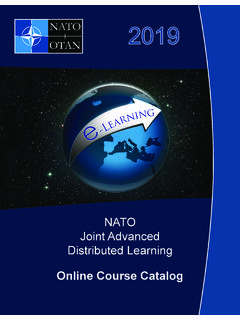Transcription of Instructions for Form 1023 (Rev. December 2017)
1 Userid: CPMS chema: instrxLeadpct: 100%Pt. size: 9 Draft Ok to PrintAH XSL/XMLF ileid: .. ns/I1023/201712/A/XML/Cycle09/source(Ini t. & Date) _____Page 1 of 37 12:29 - 2-Jan-2018 The type and rule above prints on all proofs including departmental reproduction proofs. MUST be removed before for form 1023(Rev. December 2017 )Application for Recognition of Exemption Under Section 501(c)(3) of the Internal Revenue CodeDepartment of the TreasuryInternal Revenue ServiceSection references are to the Internal Revenue Code unless otherwise 's of Section 501(c)(3) of Tax-Exempt to to To Organizations in I. Identification of II. Organizational III. Required Provisions in Your Organizing IV. Narrative Description of Your V. Compensation and Other Financial Arrangements With Your Officers, Directors, Trustees, Employees, and Independent Contractors.
2 8 Part VI. Your Members and Other Individuals and Organizations That Receive Benefits From VII. Your VIII. Your Specific IX. Financial X. Public Charity XI. User Fee A. B. Schools, Colleges, and C. Hospitals and Medical Research D. Section 509(a)(3) Supporting E. Organizations Not Filing form 1023 Within 27 Months of F. Homes for the Elderly or Handicapped and Low-Income G. Successors to Other H. Organizations Providing Scholarships, Fellowships, Educational Loans, or Other Educational ContentsPageGrants to Individuals and Private Foundations Requesting Advance Approval of Individual Grant Procedures ..24 Appendix A: Sample Conflict of Interest B: States with Statutory Provisions Satisfying the Requirements of Internal Revenue Code Section 508(e)..28 Appendix C: Glossary of Keep a copy of the completed form 1023 for your permanent DevelopmentsFor the latest information about developments related to form 1023 and its Instructions , such as legislation enacted after they were published, go to HelpIf you have questions and/or need help completing form 1023, please call 877-829-5500.
3 This toll-free telephone service is available Monday through 's NewNew section 170(b)(1)(A)(xi). form 1023 includes the new public charity status for section 170(b)(1)(A)(ix) agricultural organizations. See Part X. Public Charity Status, new line 5g. User fees are updated annually. Organizations should reference Rev. Proc. 2017 -5, 2017 -1 230, at or later revision for user fees (revised in the first Internal Revenue Bulletin ( ) issued each year). For additional information on the user fee, see Part XI. User Fee To Get Forms and PublicationsInternet You can access the IRS website 24 hours a day, 7 days a week, at to do the forms, Instructions , and IRS products your tax questions publications on by topic or the online Internal Revenue Code, Regulations, or other official Internal Revenue Bulletins (IRBs) published in the last few up to receive local and national tax news by email.
4 To subscribe, go to forms and publications. You can download or print all of the forms and publications you may need at Otherwise you can go to to place an order and have forms mailed to you. You should receive your order within 10 business of Section 501(c)(3) OrganizationsWho Is Eligible for Section 501(c)(3) Status?Organizations organized and operated exclusively for religious, charitable, scientific, testing for public safety, literary, or educational purposes, or to foster national or international amateur sports competition, or for the prevention of cruelty to children or animals are eligible to file form 1023 to obtain recognition of exemption from federal income tax under section 501(c)(3) of the Internal Revenue 1023 not necessary. The following types of organizations may be considered tax exempt under section 501(c)(3) even if they don t file form , including synagogues, temples, and auxiliaries of churches and conventions or associations of organization that has gross receipts in each tax year of normally not more than $5,000.
5 For more information on gross receipts exceptions, go to though the above organizations aren t required to file form 1023 to be tax exempt, these organizations may choose to file form 1023 in order to receive a determination letter that recognizes their section 501(c)(3) status and specifies whether contributions to them are tax 02, 2018 Cat. No. 17132zPage 2 of 37 Fileid: .. ns/I1023/201712/A/XML/Cycle09/source12:2 9 - 2-Jan-2018 The type and rule above prints on all proofs including departmental reproduction proofs. MUST be removed before of a Section 501(c)(3) OrganizationThere are two requirements for an organization to be exempt from federal income tax under section 501(c)(3). A 501(c)(3) organization must be organized and operated exclusively for one or more exempt An organization must be organized as a corporation (including a limited liability company), trust, or unincorporated association.
6 The organizing document (articles of incorporation if you are a corporation, articles of organization if you are a limited liability company, articles of association or constitution if you are an association, or trust agreement or declaration of trust if you are a trust) must limit the organization's purpose(s) and permanently dedicate its assets to exempt An organization must be operated to further one or more of the exempt purposes stated in its organizing document. Certain other activities are prohibited or restricted, including, but not limited to, the following activities. A 501(c)(3) organization must:Absolutely refrain from participating in the political campaigns of candidates for local, state, or federal office;Absolutely ensure that its assets and earnings don t unjustly enrich board members, officers, key management employees, or other insiders;Not further non-exempt purposes (such as purposes that benefit private interests) more than insubstantially;Not operate for the primary purpose of conducting a trade or business that isn t related to its exempt purpose(s);Not engage in activities that are illegal or violate fundamental public policy; andRestrict its legislative activity.
7 An organization doesn t qualify for section 501(c)(3) status if a substantial part of its activities is attempting to influence 5768. Most public charities are eligible to elect to make expenditures to influence legislation by filing form 5768, Election/Revocation of Election by an Eligible Section 501(c)(3) Organization To Make Expenditures To Influence Legislation. By filing form 5768, an eligible organization's legislative activities will be measured solely by an expenditure limit rather than by the no substantial amount limit. For additional information on the expenditure limit or the no substantial amount limit, see Pub. 557, Tax-Exempt Status for Your this purpose, legislation includes action by Congress, a state legislature, a local council, or a similar governing body, with respect to acts, bills, resolutions or similar items (such as legislative confirmation of appointive offices).
8 Legislation also includes action by the public in a referendum, ballot initiative, constitutional amendment, or similar procedure. Legislation generally doesn t include actions by executive, judicial, or administrative may involve themselves in issues of public policy without being engaged in legislative activity. For example, organizations may conduct educational meetings, prepare and distribute educational materials, or otherwise consider public policy issues. Similarly, an organization may appear before a governmental body to offer testimony about a decision that may affect the organization's private foundation isn t allowed to influence campaign intervention. All 501(c)(3) organizations are absolutely prohibited from directly or indirectly participating or intervening in any political campaign on behalf of (or in opposition to) any candidate for elective public office.
9 Non-partisan voter education activities (including public forums and voter education guides) are permitted. Similarly, non-partisan activities to encourage people to participate in the electoral process, such as voter registration and get-out-the-vote drives, aren t prohibited political campaign activity. However, voter education or registration activities that (a) favor one candidate over another, (b) oppose a candidate in some manner, or (c) favor a group of candidates, are Charities and Private FoundationsEvery organization that qualifies for tax-exempt status under section 501(c)(3) is further classified as either a public charity or a private foundation. For some organizations, the primary distinction between a public charity and a private foundation is an organization's source of financial public charity has a broad base of support, while a private foundation receives its support from a small number of donors.
10 This classification is important because different tax rules apply to the operations of each of contributions to a private foundation is more limited than contributions to a public charity. See Pub. 526, Charitable Contributions, for more information on the deductibility of contributions. In addition, private TIPfoundations are subject to excise taxes that aren t imposed on public charities. The following 501(c)(3) organizations are classified as public , medical research organizations, and cooperative hospital service that receive substantial support from grants, governmental units, and/or contributions from the general that normally receive more than one-third of their support from contributions, membership fees, and gross receipts from activities related to their exempt functions, and not more than one-third of their support from gross investment income and net unrelated business that support other public an organization requests public charity classification based on receiving substantial public support, it must continue to seek significant and diversified public support contributions in later foundation.














